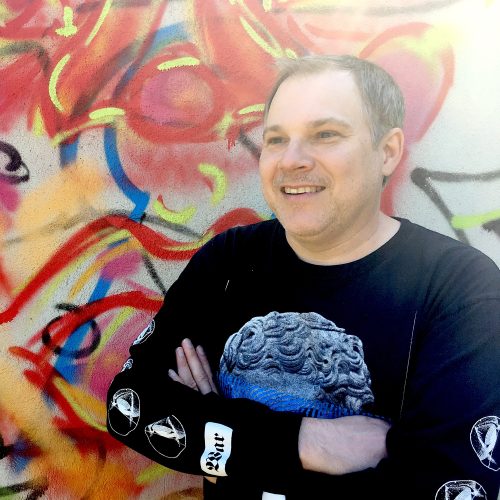Job Posting: Finance Manager for DABC
Who We Are
Since 1977, Disability Alliance BC (DABC) has been a provincial, cross-disability voice in British Columbia. We champion issues impacting the lives of people with disabilities through our direct services, community partnerships, advocacy, research and publications.
We work to support people with all disabilities to live with dignity, independence and as equal and full participants in the community.
Job Description
DABC is seeking a part-time Finance Manager to join our team at four days a week. Reporting to the Executive Director (ED), the Finance Manager will be responsible for all day-to-day bookkeeping/accounting functions including performing all bookkeeping, payroll calculations, accounts payable, accounts receivable, reviewing and assessing budgets and maintaining all accounts while ensuring that DABC is remaining financially compliant. In essence, the Finance Manager plays a critical role in ensuring that DABC is financially healthy and compliant with all relevant provincial and federal financial regulations.
The Finance Manager must have strong working knowledge of full cycle bookkeeping/accounting, a high ability to take initiative in carrying out in-depth analysis of accounts, a keen attention to detail, and excellent organizational and record-keeping skills. The Finance Manager also plays a key role as a member of DABC’s leadership committee, contributing to the direction and leadership of the organization as a whole.
Responsibilities:
- Preparing DABC’s annual budget and program budgets for grant applications and reports, and entry into Sage accounting software
- Preparing all financial records for year-end audits
- Preparing, administering and reconciliating of balance sheet accounts including deferred revenue, prepaid expenses, accrued liability, restricted assets, various banks working schedules on monthly basis
- Allocating costs / revenues to programs and correct budget lines and maintaining records of supporting documentation in compliance with auditing trails and funder requirements
- Work with the ED to update DABC’s Accounting Policy as needed
- Preparing internal monthly report on finances and cash flow. Assess and advise on current program budgets and global financial position
- Preparing charity tax returns, bi-annual GST rebates, annual WSIB reports, and all funder reports
- Maintaining compliance with CRA requirements on tax receipts and charitable gifts
- Monitoring accounts payable and receivable, and working with contractors and vendors
- Calculating / adjusting payroll / reviewing / allocating bi-monthly Ceridian reports, filing annual T4A reports and ensuring compliance
- Advising the Executive Director and Leadership team on budget expenditure and financial reporting requirements for all funders
- Preparing yearly Community Gaming Grant summary reports and monitoring Gaming accounts
- Maintain the integrity and confidentiality of sensitive staff and organizational information
- Attend meetings with funders and senior staff, and present on budget expenditures
- Preparing cheques and processing cheque requisitions
- Other bookkeeping/accounting related duties as required
Working hours:
This is a part-time, permanent position at 4 days a week. The salary is a range of $60,000-$67,000 FTE (to be prorated to 4 days a week) based on candidate’s level of experience.
This position offers the following benefits after a three-month probationary period:
- 12 days of paid vacation annually
- 14 days of paid sick leave annually
- 100% of the cost of extended health and dental care premiums
- 2 weeks of paid time off during DABC’s annual holiday office closure in December.
Requirements:
- Minimum 3 years of relevant experience in a similar role
- Sound knowledge of program accounting and two years’ year-end closing experience with external auditors
- Demonstrated high degree of skill in adjusting general ledger and making journal entries
- Experience in the non-profit sector
- Extensive knowledge of BC non profit accounting standards
- Knowledge of CRA requirements for registered charities
- Direct experience using Sage accounting software
- Experience with Microsoft Office, proficiency required in Excel
- Demonstrated ability to maintain high ethical integrity of confidential information
- The ability to explain complex financial concepts to laypeople
- Excellent organizational skills
- Strong written and verbal communication skills
- Be able to take initiative by identifying room for improvement with regards to the financial practices of the organization
The following are strong assets for this position:
- Lived experience with a disability
- Lived experience as a member of an equity-deserving group
- Full or partial relevant accounting accreditation
The position is located in Vancouver, on the Unceded Territories of the xʷməθkʷəy̓əm (Musqueam), Sḵwx̱wú7mesh (Squamish), and səlilwətaɬ (Tsleil-Waututh) Nations.
Due to the configuration of our accounting system, the successful candidate will be required to work at our office located in downtown Vancouver.
Importantly, we are looking for people who want to make a long term commitment to our organization and have a strong desire to assist people with disabilities as well as further the impact of our organization.
DABC is an open and diverse organization that promotes inclusive hiring practices. We encourage applications from qualified applicants who identify as visible minorities, Indigenous persons, and of all sexual orientations, gender expressions and identities. People with disabilities are especially encouraged to apply.
To Apply:
Please submit a resume and brief covering letter addressed to Helaine Boyd, Executive Director at helaine@disabilityalliancebc.org No phone calls or faxes please.
Applications are due no later than midnight on September 28, 2022. DABC welcomes all applications, however, only shortlisted applicants will be contacted for an interview. Interviews will be conducted in September and the position start date will be as soon as possible.





